Homa first steps and our work
Retrospective of the 10 years of Homa – Centre for Human Rights and Business
Written by: Ana Laura Figueiredo
In this series we will make a retrospective of the 10 years of Homa’s activities, highlighting our main accomplishments and involvement in the Global and National agendas regarding Human Rights and Business. Following chronological order, in the first post, we will remember the first academic seminars and the insertion of the Centre in the negotiation sessions of the International Treaty on Business and Human Rights, which is still under discussion within the scope of the United Nations.
First steps
Homa – Centre for Human Rights and Business was created in 2012, located at the Faculty of Law of the Federal University of Juiz de Fora, as an academic center for research, and extension and outreach. Its creation took place with the aim of contributing, through the production of scientific knowledge, academic-legal advice, and support to actors involved in the Human Rights and Business Agenda. This Agenda was still little debated on the national scenario and, with the increase in human rights violations in the country and in the world, it was noticed the existence of both legal and academic gaps along with the need to support civil society in defense of its rights against the advance of violations committed by transnational corporations.
Thus, the choice of name was strategic as we envisioned the need for a more effective positioning in an agenda still predominantly dominated by the logic of capital. Homa means human being in the Esperanto dialect and the inversion of “Business and Human Rights”, a nomenclature adopted globally, to “Human Rights and Business” demonstrates our position in the dispute for the primacy of human rights. This decision before civil society made it possible to build a network of partnerships, encompassing civil society, academia, and public authorities, which are significant for the development of the project and for strengthening the common objective, which is to hold transnational companies accountable for violations committed in the territories.
Developments
Since 2014, HOMA has organized an International Seminar on Human Rights and Business, reaching its ninth edition this year, which has already taken place not only at the UFJF Law School, but also at PUC in Rio de Janeiro and at the University of São Paulo. The event, which was held remotely during the pandemic, has already been attended by important figures for the Agenda such as Professor Dr. Surya Deva, a former member of the UN Working Group on Business and Human Rights.
Also in 2014, Resolution 26/9 (A/HRC/RES/26/9) was approved, which established the formation of the United Nations Intergovernmental Group on Transnational Corporations and Other Enterprises in relation to Human Rights (IGWG) and, in the following year, negotiations began on the International Treaty on Business and Human Rights. Since its first negotiating session, which took place in July 2015, Homa has been present as a representative of civil society.
As a result of this involvement, we also joined the Global Campaign to Claim the Sovereignty of the Peoples, Dismantle the Power of Transnationals and End Impunity, a coalition of more than 250 social movements, networks and organizations that work together issuing declarations, providing proposals for the text and organizing parallel events to the negotiation to discuss the topics covered. Monitoring essential milestones of the Global Agenda made it possible for Homa to analyze Treaty Drafts and contribute to its consolidation as a reference for civil society and academia.
In the next post, we will continue the timeline of Homa’s activities, focusing on the theme of the centrality of the victim’s suffering and reparation, in parallel with the follow-up of cases of dam failure that became known as the greatest socio-environmental crimes in Brazil.
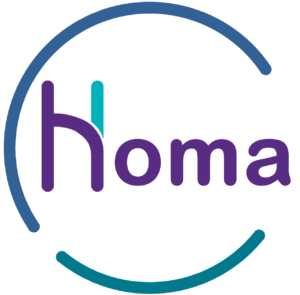
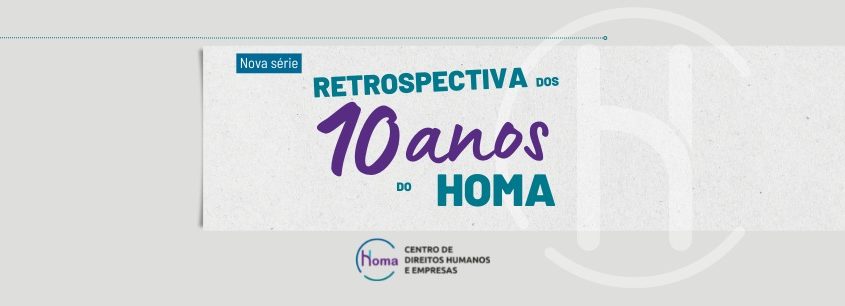
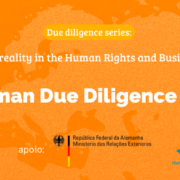
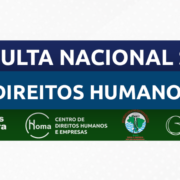
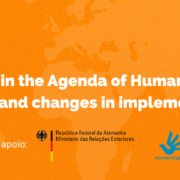
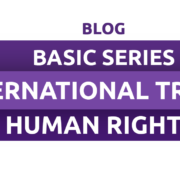
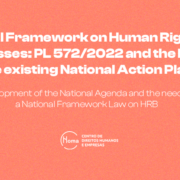
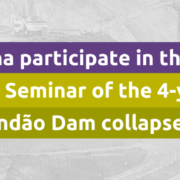
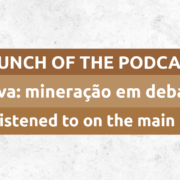



Leave a Reply
Want to join the discussion?Feel free to contribute!